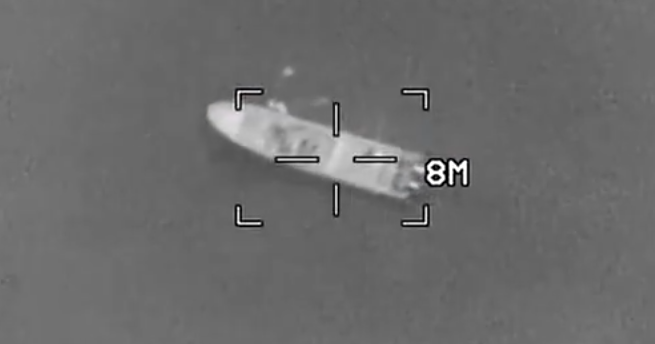Transcript: Scott Gottlieb discusses coronavirus on "Face the Nation," November 8, 2020
The following is a transcript of an interview with former FDA Commissioner Scott Gottlieb that aired November 8, 2020, on "Face the Nation."
MARGARET BRENNAN: The election may be over, but this new surge of coronavirus cases is just now beginning to take off. We want to check in now with former FDA commissioner Dr. Scott Gottlieb. Good morning. The president--
DR. SCOTT GOTTLIEB: Good morning.
MARGARET BRENNAN: --the president-elect says his very first priority is dealing with this pandemic, and he's going to name a task force tomorrow. Some of the names released by his campaign include a former surgeon general from the Obama years, as well as the former homeland security adviser. Realistically, what can a group like this do now since they don't take office till the end of January?
DR. GOTTLIEB: Well, I think the first thing they want to do is come in with a very clear plan and the president-elect has articulated what he would do. I mean, there's not a lot of novelty to this. We know what works. We know what we need to do. And so they want a plan for how they're going to hit the ground running to try to implement their strategy. The other thing that the president-elect and his team could be doing is working directly with the National Governors Association. We have one president at a time. They cannot govern. They are not in a position to govern, but they can start working with the governors to try to formulate policy through the governors, with the governors, and try to create a more national strategy that way. Because if you're not going to have a federally led national strategy in the next couple of months and it's going to be led at the state level, you at least want to coordinate across the different states, so it starts to have the semblance of a more cohesive plan.
MARGARET BRENNAN: That sounds a pretty grim assessment of what you think the Trump administration might do between November and January to get a hold of the virus.
DR. GOTTLIEB: Well, I'm not sure what they're going to do. I mean, my advice to them would be to get more aggressive. We're past the election. And I think they need to focus on what we can be doing nationally. We've been sort of arguing politically over what I think is a false dichotomy, a strawman, that it's really a choice between lockdowns and no lockdowns. And that's not the case. We- we don't need to shut down the country, close businesses, tell people they need to stay at home to get some measure of control over this virus. We're not going to get perfect control over this virus. It's a contagious virus. It's going to spread, but it doesn't need to spread at the levels and at the velocity that's going to start to press the health care system, which is what we're seeing. We're seeing that in Wisconsin now. It's building field hospitals. Utah's building field hospitals. El Paso built their fourth mobile morgue. We now have- we're going to have a record number of hospitalizations this week. Now, 56,000 people are hospitalized. 11,000 are in the ICU. These are very big numbers nationally, and it's accelerating very quickly.
MARGARET BRENNAN: The president-elect said he wants to quickly appoint a supply commander to oversee production and distribution of testing and then eventually a vaccine, materials, masks, and gowns. You previously said that a lot of these wheels are really already going to be in motion by the time he takes office. Are these realistic expectations for him to be setting?
DR. GOTTLIEB: Well, I think you need to do it anyway. The reality is that by the time the president-elect takes office, we'll probably be at the sort of apex, if you will, of what we're going through right now. You know, this is going to play out over the next couple of months. And I think as the president takes office, we'll be coming down the other side of the epidemic curve, hopefully. And the only question is going to be how many people have died in the course of this and how many people have been infected. And we have to keep those numbers down as much as possible. But there's still a lot you can do, I think, as you come in trying to make sure you're going to have adequate supplies of drugs, potentially vaccines, if we have safe and effective vaccine available and the testing equipment, the supply chain, because this isn't going to be over in 2021. I think 2021 will be much better than this year. But you still want to make sure you have adequate supplies as you come down that epidemic curve and head into the fall in 2021 when we're going to face risks again. But there's still probably a lot you could do in the near term, especially with the supply chain. That's something that can be affected in the near term. Things like durable medical equipment, testing supplies, gloves, gowns, masks.
MARGARET BRENNAN: So there have been a lot of celebratory gatherings in the past 24 hours, mostly with masks, but not all. And I- I wonder what you think about whether in January will even be able to have an inauguration with the usual celebrations.
DR. GOTTLIEB: I don't think we will. I don't think we're going to be able to bring large crowds together for an inauguration, we're going to be right in the thick of probably the worst point of this epidemic wave that we're going through right now. And you know the- the Biden campaign, the Biden team, have shown that they're willing to forgo the usual trappings of running for office so that they don't expose people unnecessarily. I suspect they're going to take a similar approach to how they- how they handle the inauguration. I don't know what that's going to look like, but we're not going to be able to bring together tens of thousands or hundreds of thousands of people on the lawn in Washington for a typical inauguration.
MARGARET BRENNAN: Well, we've learned that the president's chief of staff, Mark Meadows, is now COVID positive. He was at the White House gathering just this week when the president addressed the nation on- on election night. He had access to testing, regular testing. So, I just wonder what the- the message is for everyday Americans who are thinking about celebrating Thanksgiving, and maybe think that if they get a test beforehand that they're adequately protecting their families. Are they?
DR. GOTTLIEB: No, they're not. I mean, the tests can help. I think- I- it's prudent to try to get tested if you're going to bring together a group of people. But if you have individuals who are vulnerable in that setting, I think you still need to be very careful if you're going to be exposing younger people in a broader group to older individuals who are vulnerable. If you do do that, make sure they're wearing high quality masks, try to get a N95 mask and have them wear it the whole time. Try to keep people separated and distanced where you can. You know, you need to take a layered approach. Testing alone can't create a safe environment, a protective bubble--
MARGARET BRENNAN: Yeah.
DR. GOTTLIEB: Even the NHL and the NBA, which had enormous testing, weren't able to use testing alone.
MARGARET BRENNAN: All right, Dr. Gottlieb, great to talk to you. We'll be back in a moment.



